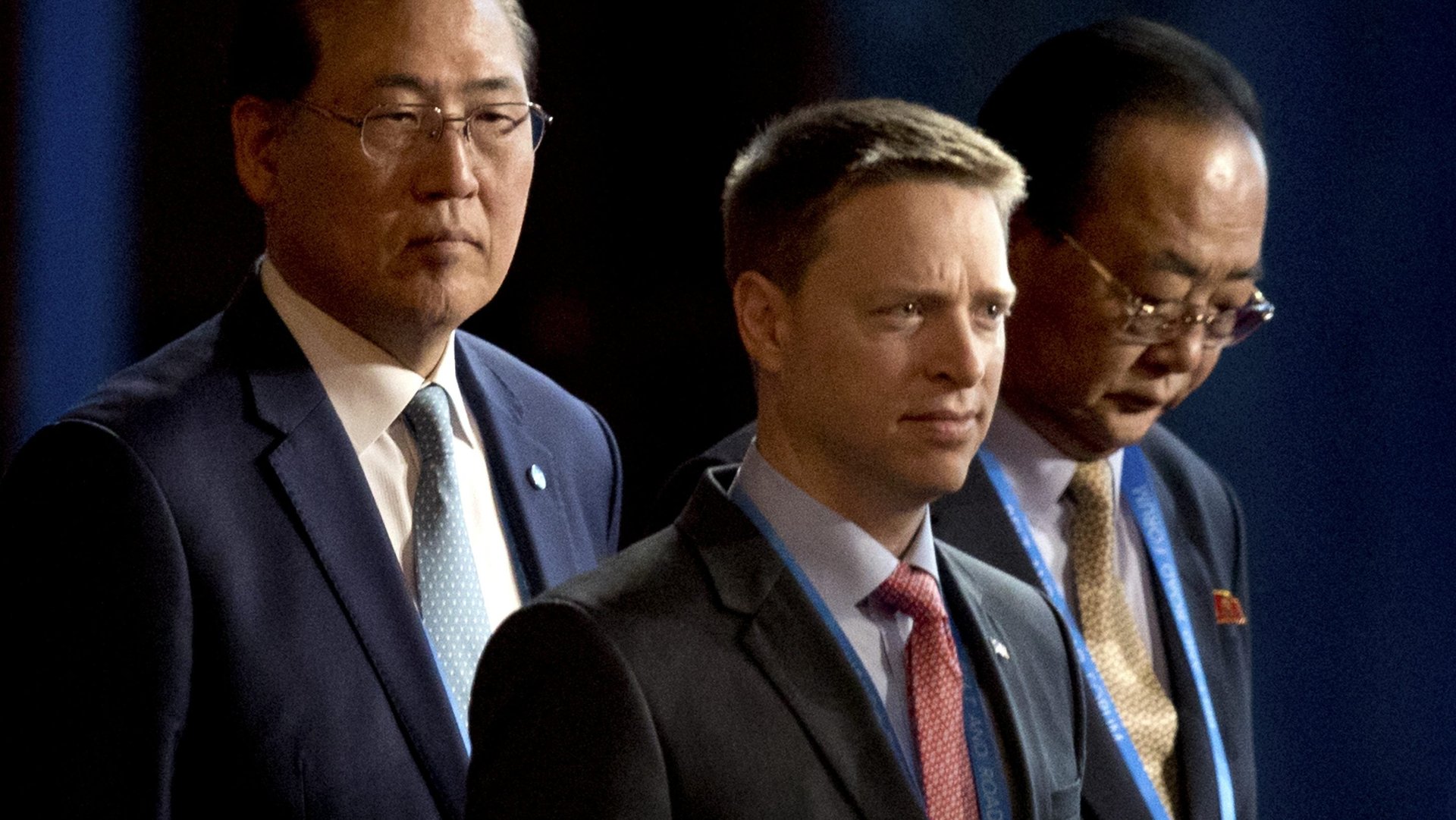Trump just gave China what it wanted for its new Silk Road: a credibility boost from the US
China’s “new Silk Road” initiative aims to link the economies of Asia, Europe, the Middle East, and Africa—but Beijing would really like the US to get on board.


China’s “new Silk Road” initiative aims to link the economies of Asia, Europe, the Middle East, and Africa—but Beijing would really like the US to get on board.
Also called “One Belt, One Road” (OBOR), the initiative involves expensive infrastructure projects—led by Chinese state-owned companies—in dozens of nations. The US has much to offer, and as part of a trade deal (paywall) with China announced last week, the Trump administration agreed to send one of its top Asia experts, Matthew Pottinger, a National Security Council official, to a two-day OBOR summit just completed in Beijing.
His presence amounted to a nod from the US. Recent pieces in China’s state-controlled media hint at why that’s so important to Beijing:
“Under the current international framework, the US is leading international organizations like the United Nations, the World Bank, and the International Monetary Fund,” read a commentary (link in Chinese) in Xiakedao, a WeChat account run by the People’s Daily. “This is like a date, when a girl says yes to dinner and a movie—there will be further development possibilities.”
It goes on:
“It’s estimated that $1.7 trillion would be required for annual infrastructure investments on nations involved in OBOR, but the three [funding] institutions involved—the Asian Infrastructure Investment Bank, the New Development Bank, and the Silk Road Fund—only have capital totaling $240 billion. The US can help advocate OBOR in key fundraising areas.”
The US can also help deal with “security and geopolitical challenges” in the implementation of OBOR, noted a commentary in the Global Times. For instance, India has some issues with the China-Pakistan Economic Corridor, an OBOR land-corridor project (with a $46 billion investment from China) that partially runs through contested territory in Kashmir.
The commentary said:
“Washington’s participation in the Belt and Road initiative will have knock-on effects, encouraging its allies to see the initiative from a more rational and objective perspective, and thus help win Beijing and its infrastructure projects more international understanding and influence.”
The US economy will also benefit from OBOR, suggested Chinese state media.
The US should be ”a stakeholder in the initiative,” read a column in the Global Times, as joining it would “deliver benefits to American companies and help increase job opportunities within the country.”
America “has a lot to gain by participating in the Belt and Road,” said an opinion piece in the People’s Daily. It should “embrace China’s progress in regional integration and seize the opportunity.”
The presence of Pottinger no doubt cheered Beijing, which had difficulty luring top leaders to the summit—of the 64 OBOR nations that could have sent their heads of state, only 20 chose to do so.